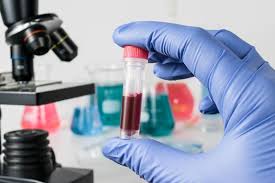A new blood test has shown ability to screen numerous types of cancer with a high degree of accuracy. A trial of the test showed it detected and localized more than 20 types of cancers.
The test, developed by biotechnology company Grail Inc uses next-generation sequencing technology to probe DNA for tiny chemical tags (methylation) that influence whether genes are active or inactive.
When applied to nearly 3,600 blood samples — some from patients with cancer and some from people who had not been diagnosed with cancer at the time of the blood draw — the test successfully picked up a cancer signal from the cancer patient samples, and correctly identified the tissue from where the cancer began (the tissue of origin),” said investigators from Boston-based Dana-Farber Cancer Institute.
The test’s specificity – its ability to return a positive result only when cancer is actually present – was high, as was its ability to pinpoint the organ or tissue of origin, they found.
The new test looks for DNA, which cancer cells shed into the bloodstream when they die.
In contrast to ‘liquid biopsies’, which detect genetic mutations or other cancer-related alterations in DNA, the technology focuses on modifications to DNA known as methyl groups.
Methyl groups are chemical units that can be attached to DNA, in a process called methylation, to control which genes are “on” and which are “off.”
Abnormal patterns of methylation turn out to be, in many cases, more indicative of cancer – and cancer type — than mutations are.
“Our previous work indicated that methylation-based assays outperform traditional DNA-sequencing approaches to detecting multiple forms of cancer in blood samples,” said the study’s lead author Geoffrey Oxnard from Dana-Farber.
“The results of the new study demonstrate that such assays are a feasible way of screening people for cancer,” Oxnard added.
Detecting even a modest percent of common cancers early could translate into many patients who may be able to receive more effective treatment if the test were in wide use, the study said.
Dana-Farber Cancer Institute investigators presented the results of the trial during a session at the European Society for Medical Oncology (ESMO) 2019 Congress in Barcelona in Spain September 28.
(IANS)

